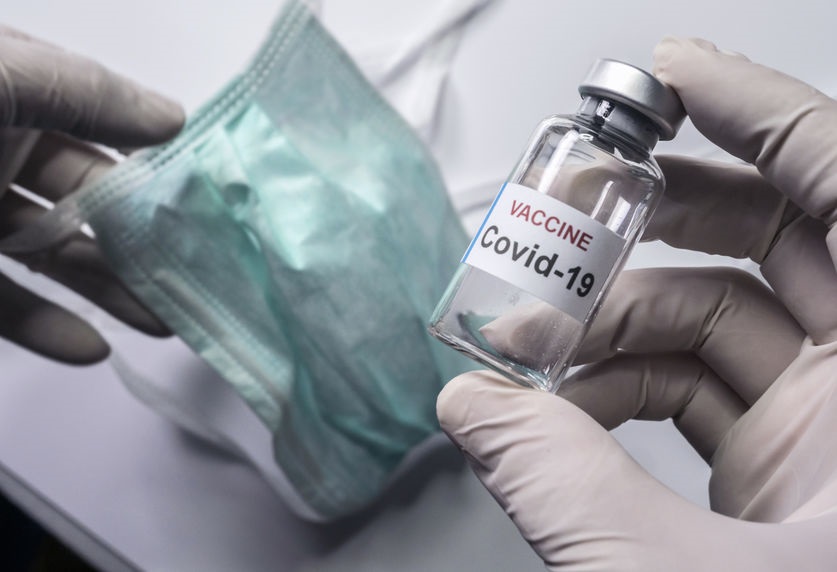In December, we published a blog post about the EEOC’s guidance when employers require employees to get the COVID-19 vaccine, that article can be found here. On May 28, 2021, the EEOC updated that, answering lingering questions and making it clear that, with certain caveats highlighted below, employers can require employees to get the COVID-19 vaccine before returning to the workplace.
The takeaways for employees from the EEOC’s latest guidance:
- Vaccination Can Be Mandatory! Employers may require employees to receive the COVID-19 vaccine before returning to the physical worksite, unless an employee requires an accommodation due to a disability, sincerely held religious belief, or because of pregnancy (provided that the employer makes modifications or exceptions for other employees) that does not present an undue burden for the employer, or the vaccine requirement is job-related and consistent with business necessity.
- Accommodations Recognized. The EEOC provided examples of possible reasonable accommodations for individuals with disabilities, religious beliefs or pregnancy, which include but are not limited to:

- Wearing face mask/shields
- Socially distancing
- Working a modified shift
- Periodic COVID-19 testing
- Telework
- Reassignment
- Employees Must Notify Employer of Need for Exemption from Vaccine. If a person with a disability or religious belief needs an exemption or workplace accommodation from receiving the COVID-19 vaccine, it is on the employee to directly notify the employer of the need for an accommodation. To request an accommodation, no magic words must be used as management and supervisors should be properly trained about disability and religious accommodation matters and to know how to recognize an accommodation request.
- Employers Can Promote Vaccination. Employers can provide education and information on vaccines to employees as well as offer incentive programs to employees who receive COVID-19 vaccines or show proof of vaccination. If, in order to receive the incentive, you have to get the vaccine from your employer or its agent, the incentive must not be so large that it is coercive, a standard that the EEOC did not define. Importantly, an incentive in this context includes both a reward for receiving the vaccination and/or a penalty. Likewise, employers can offer an employee’s family members an incentive to get vaccinated or to show proof of vaccination. However, the incentive must be given directly to the family member, it cannot be given to the employee themselves. The employer will also be required to keep your family members’ medical and vaccination records confidential.
- Employee Vaccine Information is Confidential. The EEOC requires employers to keep their employees’ vaccination records confidential and separate from any personnel files. This includes not only records of your vaccination card, but any other records that your employer has that concerns your vaccination status.
- Employers Cannot Make Improper Disability-Related Inquiries or Medical Examinations When Employer or its Agent Gives the Vaccine. The ADA protects employees from improper medical screens as part of the vaccine process. While getting the vaccine itself does not constitute a medical examination, the pre-screening questions for the vaccine may elicit information about a disability. Thus, the pre-screening questions should be job-related and consistent with business necessity—meaning that based on a reasonable belief, “an employee who does not answer the questions, and therefore, cannot be vaccinated, will pose a direct threat to the employee’s own health or safety or health of others in the workplace.” However, if the program is not mandatory and is strictly voluntary, then an employer is not required to show that the pre-screening questions are job-related and consistent with business necessity.
- An Employer’s Request for Documentation or Confirmation of Vaccine is Not a Medical Inquiry. The EEOC specifically said that requesting documentation or confirmation from a pharmacy or health care provider or clinic is NOT a disability-related inquiry in violation of the ADA.
- Religious Accommodations Exempting Vaccination. The EEOC says that the definition of religion is broad enough that an employer should assume that any employee’s claim of a religious belief is sincere even if the employer is unfamiliar with the religion. The employer should consider such accommodation requests in the same manner they consider other accommodation requests.
- GINA is Not Implicated by Employer-Required Vaccines. Employers’ vaccination requirements do not implicate the Genetic Information Non-Discrimination Act. The EEOC opined that because the pre-screening questions for the three FDA approved vaccines do not ask for any genetic information or family medical history, employers can ask the questions without violating GINA. This is also true when the employer requests documents or confirmation of the vaccine.
- Employer Vaccine Programs May Have Disproportionate Impact. Employers must be sensitive to the fact that their vaccination requirements may have a disparate impact on certain protected classes of employee (i.e. based on race, color, religion, sex, or national origin). This could occur because certain groups face greater barriers to acquiring the vaccine than others.
The EEOC guidance applies to application of the Americans with Disabilities Act and other federal anti-discrimination laws that it enforces. There may be other legal theories to challenge COVID-19 vaccine requirements.
Sass Law Firm is dedicated to the rights of employees. If you believe your employer has an unlawful vaccine requirement, consult experienced employment attorneys to know your rights and evaluate your case.

